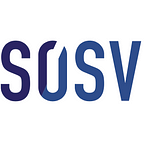When the first hardware makerspaces were coming online in 2005, a community biolab facility would have been next to impossible. At that time, it still cost tens of millions of dollars to sequence a human genome. Even with the economies of scale afforded by shared spaces and pooled resources that were so powerful in other fields, hands-on exploration of biotechnology was out of reach of the general public. But today, thanks to revolutionary breakthroughs like CRISPR gene-editing, it’s a whole different ballgame.
As Bill Liao, managing director of life sciences accelerator RebelBio said in his recent 42 Questions interview, “It’s become so many millions of times cheaper to do biology. Just a genome sequence has become 10 million times cheaper in 12 years — that’s far faster than Moore’s Law.”
Those exponential leaps have unlocked a world of possibilities for citizen scientists interested in biology, and Genspace in Brooklyn, NY is at the vanguard. Founded in 2009, Genspace is one of the world’s first community biolabs. Their biosafety level 1 lab is open to the general public and offers a fully equipped molecular and synthetic biology facility, scientific equipment, shared supplies, and professional scientific mentorship.
Over the course of a few weekends, someone who doesn’t know a pipette from a plasmid can dive in on projects that would’ve been all-but-impossible just a few years ago. From Genspace’s biohacker class description:
“We’ll extract our own DNA, analyze ancestry through bioinformatics, splice genes into bacteria, and learn all the standard techniques such as using pipettes, gel electrophoresis, amplifying DNA with PCR reactions, working with restriction enzymes to build plasmids, and growing and transforming bacteria.”
As Genspace teacher Julie Wolf, PhD puts it, “This is an egalitarian space open to anyone with an interest in biology. We assume no basic knowledge of DNA, RNA, the different building blocks of life, but we hope you leave with an appreciation for all of these things.”
For some, visiting a DIY biolab like Genspace may be an enjoyable and edifying one-time diversion. For others, it may launch a career or even a successful start up. Case in point: Opentrons. Their liquid-handling robot for automated pipetting was conceived at Genspace. It went on to be funded by SOSV and Khosla Ventures and accelerated at HAX, the world’s first and largest hardware accelerator.
Regardless of why you go or what you get out of the experience, as Dr. Wolf says, “These types of spaces are really important. The molecular techniques we talk about are being applied in things that are affecting our day-to-day life. The more people understand about how technology affects them, the more they’re able to make decisions about how that technology should be used.”
For more on Genspace, go to genspace.org and watch SOSV’s ► Spaces & Places: Genspace.
If you like this article, please give it some applause!
